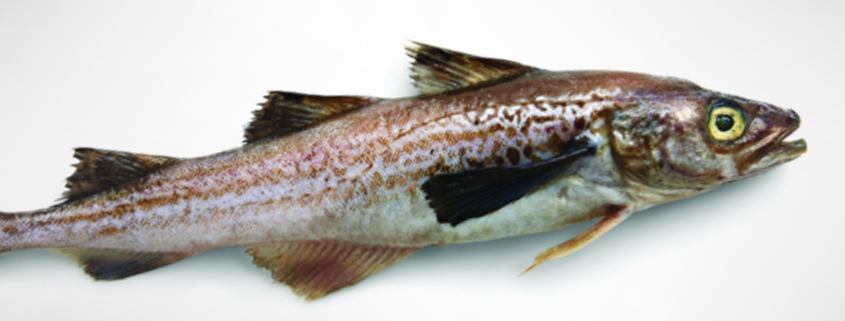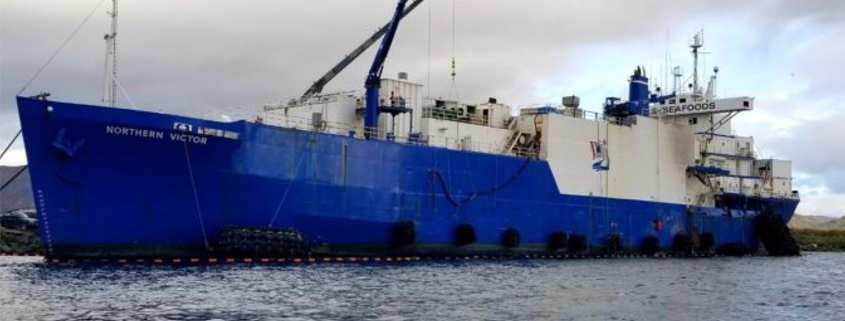Kleiman: Icicle whitefish sale boosts all parties’ ‘efficiency’
For Ignacio Kleiman, advising on Cooke’s recently completed sale of IcicleSeafoods’ whitefish sh harvesting and processing assets to a venture owned by Japan’sMaruha Nichiro and two US community development quota (CDQ) groups was a blast from the past.
Kleiman, the managing partner of Miami, Florida-based Antarctica Advisors, told Undercurrent News that he’d advised then employee-owned Icicle in 2007 when the Seattle-based fishing and farming “mini-conglomerate” was sold to US private equity (PE) Paine & Partners.
Paine sold Icicle to Canada’s Cooke in 2016 after a protracted sales process. Cooke’smain interest was in Icicle’s Alaska salmon processing assets, which it subsequently spun off in a merger with Ocean Beauty Seafoods to form OBI Seafoods in 2020. Though Cooke is retaining Icicle’s Washington salmon farming operations, it chose to sell off the inshore pollock harvesting and processing division to Maruha in order to concentrate on “higher value-added seafood resources”.
According to a press release from Maruha and the CDQ groups, the deal includes nine fishing vessels, “shared ownership” of 4% of the total Bering Sea pollock quota– thought to be around 60,000 metric tons — and the Northern Victor, a stationary processing plant permanently moored in Dutch Harbor. Sources told Undercurrent that the deal does not include the vessel Gordon Jensen, which remains with the entity Evening Star, which Cooke has a minority stake in.
Kleiman said the transaction allows Cooke to exit what is for them, a “non-core” business, and generally makes all four parties better off. Maruha, which already operates in the space through Westward Seafoods and other interests. The CDQgroups Coastal Villages Regional Fund (CVRF) and Norton Sound EconomicDevelopment Corporation (NSEDC) are also active pollock harvesters.
“It is very interesting. I think it’s going to make everybody more efficient. I mean, Maruha gets more volume for each plant. The CDQs get to buy resources, quota, which is generational, they want that. They want to keep it forever. So it’s, it’s one of those where it’s win-win,” he said.
He added that the sale of the Icicle assets had been in the works since 2020. It was made more difficult both by the pandemic and the fact that the complexity of inshore pollock fishery and restrictions on foreign ownership effectively limits the buyer pool to “strategic” investors, i.e., those already in the seafood business, rather than outsiders like PE firms and others.
“It was very different from your typical offshore deal. It was very large, a lot of volume. You needed a plant to send a volume to, you had obviously your foreign ownership, regulations, limitations, so Maruha couldn’t go and buy by themselves. So many, many, many moving parts,” Kleiman said.
The fleet of catcher boats is part of the Northern Victor Fleet Cooperative, which in2020 harvested 61,008t of a pollock allocation of 66,018t, according to a public report from the cooperative. The cooperative is made up of 14 vessels landing into the Northern Victor plant.
Maruha has been involved in the Alaska seafood space for decades, although this took a notable turn on Dec. 31, 2020. That’s when the Japanese firm unloaded its struggling Peter Pan Seafood Company salmon processing operation to a group of
investors including Rodger May of Alaska distributor Northwest Seafood Companyand US PE firms McKinley Capital Management and RRG Capital Management. Sources identified that group as competing with the Maruha/CDQ interests for the Cooke whitefish sh assets before the former emerged as the frontrunner. Antarcticaadvised Maruha on the Peter Pan sale.
The Icicle transaction marks the third major piece of pollock dealmaking in recent months after NSEDC bought a majority position in Glacier Fish Company andTrident Seafoods acquired the Starbound factory trawler and two catcher boats from Aleutian Spray Fisheries.
Kleiman said the recent trend of CDQ and Alaska Native corporation investment in the state’s seafood is unsurprising and should be welcomed.
“I think it will continue and it should continue. Not only, you know, they are better owners because them being institutions and not families, for example. It makes sense for them to go and buy quota, resource because they can hold it for 100years, 200 years,” he said.
He said that in the case of CDQ groups, which represent a swathe of remote villages in Western Alaska and use grants of federal fishing quota to fund social programs there, the recent seafood investment spree has been years in the making.
“It took these guys time to first capitalize themselves, make enough money where they can go and make these big investments. I mean, this is tens of millions of dollars of investments. It takes time to save that amount of money and be able to make those moves,” he said.



